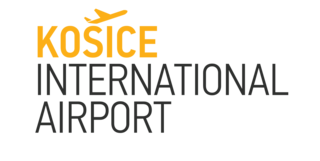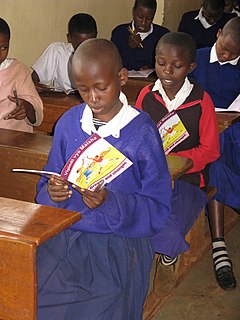
Magnetohydrodynamics is the study of the magnetic properties and behaviour of electrically conducting fluids. Examples of such magnetofluids include plasmas, liquid metals, salt water, and electrolytes. The word "magnetohydrodynamics" is derived from magneto- meaning magnetic field, hydro- meaning water, and dynamics meaning movement. The field of MHD was initiated by Hannes Alfvén, for which he received the Nobel Prize in Physics in 1970.

A magnetohydrodynamic drive or MHD accelerator is a method for propelling vehicles using only electric and magnetic fields with no moving parts, accelerating an electrically conductive propellant with magnetohydrodynamics. The fluid is directed to the rear and as a reaction, the vehicle accelerates forward.

A tampon is a menstrual product designed to absorb blood and vaginal secretions by insertion into the vagina during menstruation. Unlike a pad, it is placed internally, inside of the vaginal canal. Once inserted correctly, a tampon is held in place by the vagina and expands as it soaks up menstrual blood. However, in addition to menstrual blood, the tampon also absorbs the vagina's natural lubrication and bacteria, which can change the normal pH, increasing the risk of infections from the bacterium Staphylococcus aureus, which can lead to toxic shock syndrome (TSS). TSS is a rare but life-threatening infection that requires immediate medical attention.
A magnetohydrodynamic generator is a magnetohydrodynamic converter that utilizes a Brayton cycle to transform thermal energy and kinetic energy directly into electricity. MHD generators are different from traditional electric generators in that they operate without moving parts to limit the upper temperature. They therefore have the highest known theoretical thermodynamic efficiency of any electrical generation method. MHD has been extensively developed as a topping cycle to increase the efficiency of electric generation, especially when burning coal or natural gas. The hot exhaust gas from an MHD generator can heat the boilers of a steam power plant, increasing overall efficiency.

Košice International Airport is an international airport serving Košice, Slovakia. It is the second largest international airport in Slovakia. It is located 6 km (3.7 mi) to the south of St Elisabeth Cathedral, 230 m (750 ft) above sea level, covering an area of 3.50 km2 (1.35 sq mi). It serves both scheduled and charter, domestic and international flights. Airport capacity is currently 800,000 passengers a year.,
Television stations in Slovakia broadcast in both DVB-T format and DVB-T2 format. Broadcasting is mostly in the Slovak, state-owned channels have some dedicated broadcasting for ethnic minorities. Foreign language movies and shows are dubbed. Czech production is often broadcast in original, with the exception of juvenile programs. Sometimes, foreign language movies are broadcast with Czech dubbing. Czech television channels are also popular in Slovakia, received in paid DVB-T2 service, directly in border regions or carried by cable companies and satellite operators. Most of premium channels like Filmbox, HBO, Viasat Channels, etc. broadcast only in Czech. Discovery, Sport 1, Sport 2 and few others are exception, they broadcast in both Czech and Slovak.
Slovak hip hop is said to have begun in 1988, before the establishment of the Slovak Republic itself. The first rap song released in Slovakia was done by Rap Steady Crew from Košice in 1993, followed by Jednotka slovenskej starostlivosti (JSS) with their album Kompromis in 1997 as well as the duo Trosky releasing their record. Long-running crews are Lúza and Drvivá Menšina, who perform together as Názov Stavby with DJ Hajtkovič. Vec, formerly of the seminal duo Trosky, is considered by many today to be the most influential figure within hip-hop music in Slovakia, although newer acts such as 2H+, A.M.O, MC Vrabec, Čistychov and Kontrafakt have also gained significant popularity since 2003. Slovak hip hop was considered to start becoming popular when Kontrafakt released their first music video, Dáva mi, in 2003. It topped many video charts in Slovakia and the Czech Republic. The video even appeared on MTV. Kontrafakt's platinum debut album E.R.A. is considered to be one of the albums with the "classic" status.

I. P. Pavlova is a Prague Metro station on Line C. It is in the Vinohrady district of Prague. Above the station is I. P. Pavlov Square, which is named after Russian physiologist Ivan Petrovich Pavlov. Both the station and the square are shortened by locals to diminutive names such as Ípák, Pavlák or Ípáč.

"Bleed It Out" is a song by American rock band Linkin Park. The song was released as the second single from their third studio album, Minutes to Midnight. The single was released on August 17, 2007.
Bratislava's geographical position in Central Europe has long made Bratislava a natural crossroads for international trade traffic. Various ancient trade routes, such as the Amber Road and the Danube waterway have crossed the territory of today's Bratislava. Today Bratislava is a road, railway, waterway and airway hub.

MTV Czech Republic is a 24-hour music and entertainment television channel that served the Czech Republic and Slovakia. The channel was launched on 29 November 2009 under a licensing agreement between MTV Networks Europe, a subsidiary of MTV Networks, owned by the current Viacom from its split of the old Viacom in 2005 and CME, the owner of TV Nova.

Public transport in Bratislava is managed by Dopravný podnik Bratislava, a city-owned company. The transport system is known as Mestská hromadná doprava, and the network is the largest in Slovakia. The history of public transportation in Bratislava began with the opening of the first tram route in 1895, when the city was in the Kingdom of Hungary, part of the Austro-Hungarian empire. Passengers must buy their tickets before entering the vehicle. Revenue from tickets covers approximately 40% of expenses, with the other 60% paid by the city.

Celeste Rizvana Buckingham is a Slovak singer and songwriter of Swiss-American origins. The former finalist of Česko Slovenská SuperStar (2011), Buckingham gained early recognition on the second season of the Czech and Slovak reality television series SuperStar, co-produced for audiences of the two nations. Even though eliminated from the talent contest, having placed tenth, she promptly established herself as a independent artist. Her first singles, "Blue Guitar" and "Nobody Knows", each found a top-ten response on the component airplay chart in her home country, and so did her first collaboration with Majk Spirit on "Ja a ty", recorded for the rapper's studio album Nový človek. Nevertheless, her mainstream record followed the eventual release of her full-length debut entitled Don't Look Back (2012).

The Škoda 14Tr is a Czech trolleybus that was produced from 1981 to 1998. Prototypes were built in 1972 and 1974.
Menstrual Hygiene Day is an annual awareness day on May 28 to highlight the importance of good menstrual hygiene management (MHM) at a global level. It was initiated by the German-based NGO WASH United in 2013 and observed for the first time in 2014.

The Mariánské Lázně trolleybus system forms part of the public transport network in Mariánské Lázně, in the Czech Republic. The spa town located in the western part of the Czech Republic is one of the smallest towns in the world that still has an operating trolleybus system. It was established as a replacement for older no longer adequate tram system and went into operation on 27 April 1952, when Mariánské Lázně was in Czechoslovakia. The very first vehicles to operate the newly established network were Škoda 7Tr. Since 2006 the public transport in Mariánské Lázně is operated by Městská Doprava Mariánské Lázně s. r. o. company.

Menstrual hygiene management (MHM) or menstrual health and hygiene (MHH) refers to access to menstrual hygiene products to absorb or collect the flow of blood during menstruation, privacy to change the materials, and access to facilities to dispose of used menstrual management materials. It can also include the "broader systemic factors that link menstruation with health, well-being, gender equality, education, equity, empowerment, and rights". Menstrual hygiene management can be particularly challenging for girls and women in developing countries, where clean water and toilet facilities are often inadequate. Menstrual waste is largely ignored in schools in developing countries, despite it being a significant problem. Menstruation can be a barrier to education for many girls, as a lack of effective sanitary products restricts girls' involvement in educational and social activities.

Bratislava tram network serves Bratislava. It is operated by Dopravný podnik Bratislava, a. s and the system is known as Mestská hromadná doprava.












